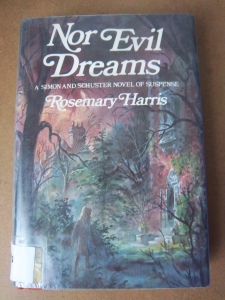“Or, Maisie,”–he had looked at her intently–“the task of asking questions, of peeling back layers of the past, reveals something that has nothing to do with the cases and everything to do with ourselves.”
I read the first two books in Jacqueline Winspear’s Maisie Dobbs series about two years ago, and it was high time I returned to England between the wars.
In Pardonable Lies, Maisie is asked by Sir Cecil Lawton to fulfill his wife’s dying wish and investigate the death of their son in France during the war. She always believed that Ralph was alive, though in some ways he was dead to Sir Cecil even before becoming a pilot. When Maisie connects with her old school friend Priscilla she is surprised to receive a similar request. Peter is the only one of her brother’s whose grave she has not visited, because her mother threw away the telegram describing his death and burial.
 What seem like routine investigations hold unseen challenges. Records are missing or inaccessible for both soldiers, and reading the papers the dead men left behind reveal that there may have been a link between the two. Unfortunately, that would mean a return to France for Maisie, who has not been since her dismal nursing days and injuries during the war over a decade prior. Her duties to her client and friend win out, and she embarks on a journey to confront the secrets and demons of the past.
What seem like routine investigations hold unseen challenges. Records are missing or inaccessible for both soldiers, and reading the papers the dead men left behind reveal that there may have been a link between the two. Unfortunately, that would mean a return to France for Maisie, who has not been since her dismal nursing days and injuries during the war over a decade prior. Her duties to her client and friend win out, and she embarks on a journey to confront the secrets and demons of the past.
Priscilla turned to Maisie. “I’m not used to this sort of talk, but here’s what I think: I think that the dragon is part of us. What happened, happened. We saw into the jaws of a terrible creature as he feasted upon us all. That is war. You have to find a way to acknowledge and live with it.”
Pardonable Lies turned out to be my favorite entry in the series so far. Maisie comes across as much more human and vulnerable. The plot was also…I don’t want to use the term romantic, but it’s the closest I can think of. We have undercover missions and secret liasons, and a French village that recalled Assignment in Brittany. The horror and tragedy of the war are still present, but I guess the figures involved just seemed more heroic somehow.
I wanted to finish this review first, but I hope there is not as long of a gap until I read the next Maisie Dobbs. I’ve heard that the series improves as it continues.

